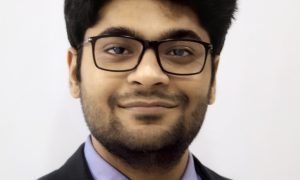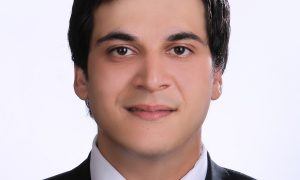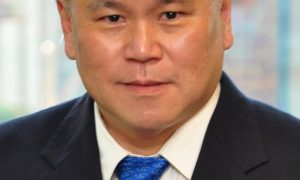SMITA RAJMOHAN, SENIOR PRODUCT COUNSEL AT AUTODESK, ON BEING A LAWYER, HER EXPERIENCE IN LEGAL COUNSELING ON PRODUCT AND COMMERCIAL ISSUES AND HER ADVICE TO LAW STUDENTS

This interview has been published by Maaz Akhtar Hashmi and The SuperLawyer Team. The Interview was taken by Priyanka Cholera.
How did your journey in law begin? Was being a lawyer always a dream?
After graduating from higher secondary school, I took up Science with a plan to pursue engineering but realized that it wasn’t really my true calling. I decided to sit for the law school exam since I was good at debating, elocution, recitation, and other extra-curricular competitions. While it was not a path that I initially considered, I figured it might be a good thing to try. So, I took a few coaching/classes for law, and I immediately liked everything I learned there. I decided to go down that path instead. I will say that even though I took up Computer Science but didn’t seriously pursue it, in hindsight, it definitely helped my career as a Tech Lawyer. So, however you land and wherever you land, experiences are always valuable.
You have established a clear focus on the Intellectual Property and Technology domain through your roles at the Kirkland & Ellis and Cooley LLP. Among so many other practice areas, what drew you towards IP and Technology?
I went to Amity Law School, IP University, and then pursued my Master at the University of California, Berkeley, in Law and Technology. I enjoyed both experiences. The Berkeley experience was more focused on IP and Tech, which I was really interested in. Having had some work experience prior to joining Berkeley Law, I knew what I wanted to make my primary focus.
When I landed in Berkeley and had to choose my classes, I sought out the classes that were being taught by actual practitioners. A lot of the questions that the technology companies in California face are related to Intellectual Property and Privacy. So, when I started taking those types of classes, I thought that they were interesting subject areas that I wanted to learn about. They also had ubiquitous relevance generally in Silicon Valley. I also had some fantastic professors, and naturally, you tend to love the subject more if you have good subject teachers.
Could you please tell our readers about your time at the University of California, Berkeley? How did you see your journey to becoming an international technology lawyer in the United States?
I came with the determination to try and to get a job here. I wanted to try and learn as much as I could from the experience of the LLM. I started to find research projects I could work on for professors. I tried to enroll in classes so that I could get practical knowledge as soon as I came here. It wasn’t easy to network in a new country where I didn’t have any roots, but as you network, you figure out the kind of things you would need to do to qualify as a US attorney and how one should study for the bar exam. These sorts of things will come to you if you ask the right questions, and you will always find people who are willing to give answers. It is a matter of trying and some good luck, but above all, being prepared for the opportunity when it arises. Pursuing the LLM was not an easy decision, and I had to take an educational loan to pay for my course, so there was some level of pressure and seriousness in how I approached the program. But I tried not to stress about it too much, and I really shouldn’t have. Stress doesn’t help.
You have recently joined Autodesk, a computer software company, as a Senior Product Counsel. Could you please share about your new role?
Sure! I am really enjoying it because it is a kind of a generalist Role. You are a kind of Legal Business Partner to an entire department. You are the first point of contact for any kind of legal issue that a particular department faces. You end up being a business strategy advisor. Autodesk is a really great software company doing very interesting things, and it is very exciting to work here.
Your engagement with various organizations at the International level portrays that you have always been a leader. Does it come naturally, or would you refer to it as a call for opportunity?
Leadership is often helping people out, delegating the right task, and empowering them to do their stuff without getting in their way. I didn’t take any Leadership Courses, and I haven’t done an MBA or anything like that. I’ve been fortunate that I have had some great role models to look up to. I learn by following their leadership and management style because I think they are great leaders and inspire me.
As a tech lawyer, what potential do you anticipate in India? How do you believe, as a developing nation, we can use technology positively to bridge the socio-economic gap?
India is already killing it in this part of the world. Many Indian professionals have founded or led transformational companies in Silicon Valley, in the United States, and worldwide. There is no dearth of talent in India. The Indian startup ecosystem has also seen a boom in recent years. I definitely think India is on the rise in terms of growth in tech, at least. India has a bright future.
You have been part of multiple deals over the years involving IP & Technology matters. Could you describe some of your most exciting/challenging deals? How do you deal with matters that entail high stake pressure?
I definitely worked on some interesting deals. As a tech lawyer, it depends on what kind of group, company, or law firm you are in. I’ve had the opportunity to work on a lot of deals that have been interesting and where high-profile companies have come together. You get to think about many interesting issues like IP, antitrust obligations, privacy, etc. You get to think about how the tech will get integrated between the two companies and the roadmap for the tech in the future. There’s a lot of interesting work that you can do as a tech lawyer. At this time, there are so many other burgeoning fields inside Tech like Health Tech, or FinTech, or Tele-Medicines. I’ve had the opportunity to work on a lot of interesting deals ranging from Apple to Autodesk. It is a great field for anybody who does not want to be bored.
The Minority Corporate Counsel Association recognized you as MCCA Rising Star 2020 for your diversified work & accomplishments in the socio-legal sector. How does it feel to receive such an honour?
It feels good. I think it’s nice to see that your pro-bono work or work overseas is getting recognized. MCC is a great organization and does a good job. I do that stuff because I find it fun and interesting to talk to different people who are women, or people of color, or are under-represented. I like talking to people and helping them out whenever I can. And, being called ‘Rising Star’ feels very nice.
You were associated as a Product Counsel for Apple and worked on varied legal issues. Would you like to recall your exciting role working with arguably the most significant technology company in the world?
Everywhere I worked, I worked with people who were smarter than me. It has been my goal to go work at a place where I can learn something new. All of the places I worked at had really brilliant minds. It also depends on what kind of work you do, and what kind of joy, and how much learning opportunity you can derive from a certain experience. No matter where you work, whether it is Apple or any other big company, there’s always something to learn. I am grateful to have got such opportunities, and it feels good to work on something everybody knows about, and everybody recognizes the name of. I’ve treated all of my work equally and never prioritized any work over the over. As a lawyer, you do all the work and are happy with all of your clients’ successes.
Generally, in the US, when you practice law, you have to think about client expectations. You have to set expectations and boundaries and think about providing advice, not just based on what the rules or the law say. It also has to be pragmatic and commercial. You have to think about risk calculation – this is what the law says; this is its interpretation. Let’s think about X approach or Y; what would the risk be from the perspective of regulators, courts, consumers, and think about issues that are not only legally problematic but also ethically. It is really interesting being a tech lawyer in a company as you get to think about all the business interests, ethical dilemmas, BR Issues, along with giving legal advice.
You are a part of the San Francisco chapter of UN Women USA, working towards initiatives on gender equality in the Bay Area. Does the support for the cause stem from personal experiences subjected to sexism? In 2020, you were also featured in the ‘Unstoppable Women 2020 List’. How do you think the organizations and companies should lay enabling measures to empower women?
I feel like I have a lot of responsibility to provide support to those who need it. I am happy to help in any way I can. I get outreach from students who are trying to get into LLM or who are already here for the LLM and are job-hunting. Most of them are at Berkeley because of the alumni connection, and whenever I see a Linkedin direct message, I try to reach out and set up a one-on-one and have a chat. I think everybody who is in a position to affect change should. To the extent that I could affect change, I help by preparing people for the interviews or answering basic questions like how to network, navigating the US market, pointing to how to write a resume, or hiring and recruitment. I also sit on various non-profit boards, which is also a very gratifying work because you can bring change outside your workplace and get involved in projects. I don’t think you need to reach a particular pedestal to affect a change; you can bring as much change as I can. So everyone should start doing their own bit.
What would be your advice to people who look up to you?
I would say I’m flattered, but anyone can do it. You just need to be determined. Even if you face rejection, just keep at it. I’ve been rejected so many times and continue to be. Be resilient. I can’t say that my career path is the only path to success. There are various ways to have a successful career and a career that makes you happy. You need not be in an office atop a high-rise building to be successful in your career. You need to be grinding at something you really enjoy so it doesn’t feel like work, and that’s success to me. Find out what you love, and if you find a way to get paid for doing it on a daily basis, that’s success! Keep at it, keep networking, and try to find common connections with folks on LinkedIn. People are generally helpful. I find the US to be a meritocratic system, for the most part, so what truly matters is how much you know, what you can do, and what you are capable of.
Get in touch with:























